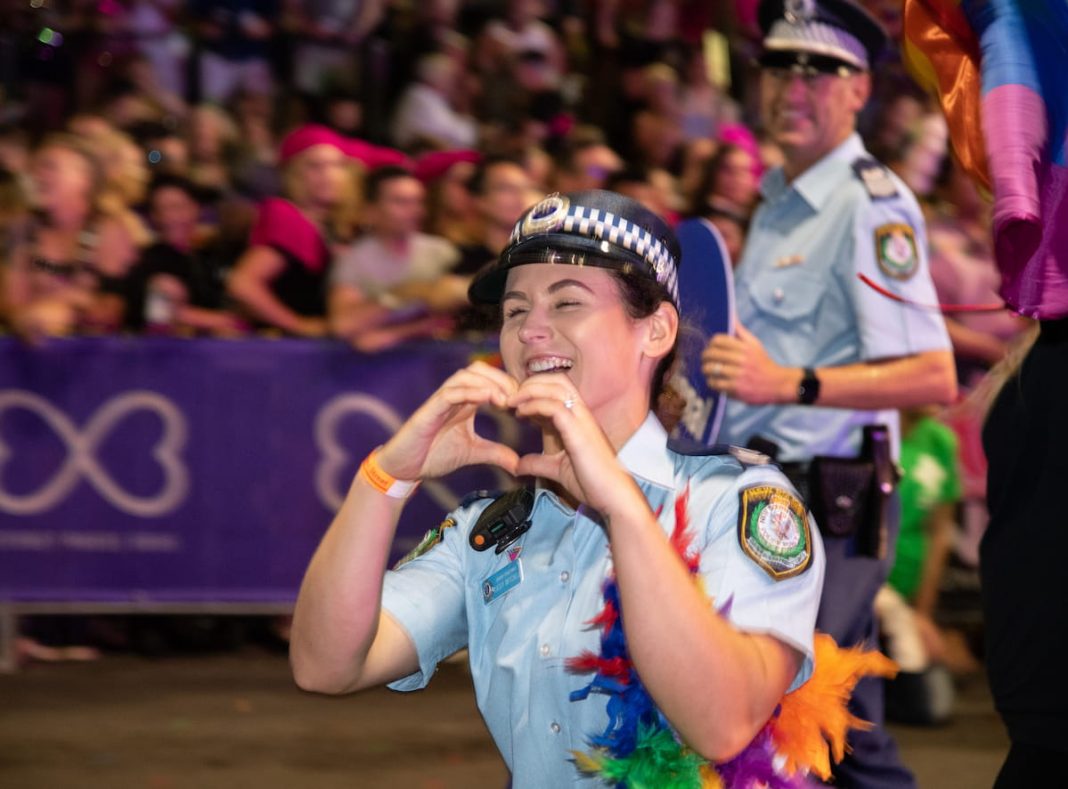Senior police have met Mardi Gras organisers in an attempt to reverse a decision to bar a uniformed contingent from marching in Sydney’s annual gay and lesbian festival.
NSW Police Commissioner Karen Webb said she was surprised at the Mardi Gras board decision, which followed an officer being charged with the murders of two men.
“I have to accept their decision … but I’d just like to meet with them and talk about how this may adversely affect police, particularly members of the gay and lesbian community,” she said on Tuesday.
Ms Webb acknowledged people within the LGBTQI community were divided, adding she would talk to festival organisers to “see how we get things back on track”.
Sydney Mardi Gras has been contacted for further comment.
The invitation for police to march in Saturday’s parade was withdrawn on Monday night.
The debate over police participation in the Mardi Gras parade has intensified after the arrest of Senior Constable Beau Lamarre-Condon, 28, over the alleged murders of Jesse Baird, 26, and his boyfriend Luke Davies, 29.
The killings allegedly occurred at Mr Baird’s home in inner-city Paddington, not far from where the parade will take place.
“Our community needs space to grieve the loss of Jesse and Luke who, before this tragedy, would have been here celebrating with us at the festival,” the Mardi Gras board said in a statement.
Investigators allege Lamarre-Condon’s crimes followed a months-long campaign of “predatory behaviour” towards Mr Baird, who he briefly dated.
The senior constable previously marched in the parade with the NSW Police contingent.
Other floats would have boycotted the parade if police were allowed to march because of the grief and extreme anger in the community, Pride in Protest spokeswoman Charlie Murphy told AAP.
“The relationship between police and the community is at complete rock bottom and there is no confidence and trust in them,” she said.
Broadcaster Julie McCrossin said she hoped police would be able to march.
“As someone arrested multiple times during the early days of gay liberation in 1970s Sydney, this cultural change and inclusiveness was what we were fighting for,” she said on social media site X, formerly Twitter.
Independent state MP Alex Greenwich, whose Sydney electorate covers the parade’s Oxford Street route, said he hoped police would march despite organisers reflecting community concerns about policing practices.
“But we’re only going to address that working together,” he said.
City of Sydney mayor Clover Moore agreed it would be a pity if police did not march.
“It’s taken years to get the police to have a positive attitude about diverse communities, including the LGBTQ-plus community and we need to constantly educate them,” she said.
“They need to be involved to be educated and it’s important that people see them at the march and they’re endorsing the community,” she said.
Premier Chris Minns and Prime Minister Anthony Albanese have also backed police taking part in the parade.
1800 RESPECT (1800 737 732)
Lifeline 13 11 14



